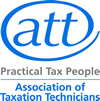 Call us now on 01926 633074
Call us now on 01926 633074

Jeff West is licensed and regulated
by AAT under licence number 13


Save Tax on Winding up a Company
Newsletter issue - February 09.
It is often not quite as easy to close down a limited company, as it is to set one up. Where a company has surplus assets it is often beneficial for tax purposes for those assets to go back to the shareholders in the form of a capital gain rather than as dividend income to take advantage of CGT exemptions and reliefs. The formal way of doing this to appoint a licensed insolvency practitioner to deal with the assets and liabilities but this can be expensive. However, an alternative to consider is an informal procedure called Extra Statutory Concession C16 (ESC C16) that can be used.
This is a concession applied by HMRC, which allows the remaining assets and cash in the company to be distributed to the shareholders without a liquidator being involved.
Where ESC C16 is used the distributions made to the shareholders are treated as capital, so capital gains tax is payable on any gains. In many situations, the amounts are small so the gains are covered by the individual's annual capital gains exemption (£9,600 for 2008/09) so no tax is payable at all.
However, before the Taxman will give permission for ESC C16 to be used the company secretary and its shareholders must give HMRC the following assurances:
The company
- does not intend to trade or carry on a business in future;
- intends collecting its debts, paying off its creditors and distribute any balance of its assets to its shareholders; and
- intends to ask Companies House to strike it off the register of companies.
The shareholders and the company must agree to:
- provide all information to HMRC such as company tax returns and accounts to determine any tax liabilities, and pay any corporation tax liability on income or chargeable gains; and
- the shareholders will pay any tax due in respect of any amounts distributed to them out of the company.
One word of warning; any aggrieved creditors of the company can object to the company being struck-off and may ask for it to be reinstated if it has already been struck-off. Thus if there are any live claims against the company, a formal liquidation is usually the best way to solve the problem.
 Cookies are small text files that are stored on your computer when you visit a website. They are mainly used as a way of improving the website functionalities or to provide more advanced statistical data.
Cookies are small text files that are stored on your computer when you visit a website. They are mainly used as a way of improving the website functionalities or to provide more advanced statistical data.













